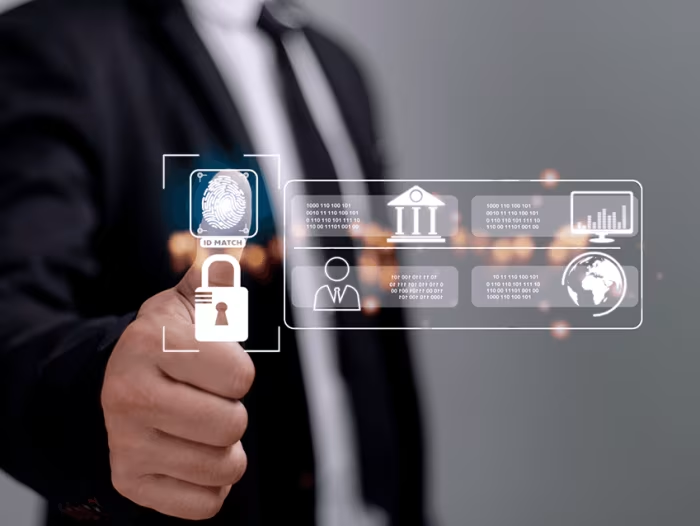Resource / Online Journal
Privacy-Enhancing Technologies in Identity Governance
This article explores how PETs empower secure, privacy-conscious identity governance across access control, compliance, and administration.
Published on Aug 4, 2025

Introduction to Identity Governance
Identity governance is the way of managing digital identities and access privileges. It is used for controlling user access, requesting access, or enforcing security policies across modern IT environments.
As enterprises expand their digital footprints, adopting hybrid infrastructures, cloud services, and remote work models, the exposure of identity data has grown exponentially. This has made privacy an urgent concern within identity and access management.
Traditionally, identity governance focused on ensuring the right people had the right access at the right time. However, today’s identity landscape also includes sensitive employee and user account data, behavioral patterns, and access history, all of which are privacy critical.
Privacy is not a checkbox or a security afterthought. It must be embedded throughout the access lifecycle. Thus, the role of Privacy-Enhancing Technologies (PETs) becomes important.
PETs is a set of cryptographic and information-theoretic advanced security techniques. It ensures secure digital identity privacy by minimizing the collection, exposure, and misuse of personal information. It also enables secure authentication, access decisions, and governance with privileged access management.
Importance of Governance and Administration (IGA)
Identity Governance and Administration (IGA) involves defining access policies, controls, and compliance mandates. While administration focuses on execution, such as provisioning users, handling access requests, and enforcing roles.
In compliance-heavy sectors regulated by frameworks like GDPR, HIPAA, and India’s DPDP Act, IGA is essential for demonstrating accountability and enforcing data protection. Privacy-Enhancing Technologies augment IGA by enabling privacy-first operations:
- Policy evaluations can be done on encrypted identity attributes, removing the need to expose sensitive user data during access reviews or compliance checks.
- Audit logs can be verified without revealing personal information, maintaining traceability while preserving user privacy.
- PETs allow fine-grained policy enforcement, using secure rule evaluations that limit access based on attributes without needing to store or view them directly.
Identity and Access Management and Control
Access management ensures only authorized users gain entry to critical systems, data, and applications. It relies on models like Role-Based Access Control (RBAC) and Attribute-Based Access Control (ABAC) to define who gets access and under what conditions.
However, traditional access systems often collect and store detailed user identity data such as full names, roles, or personal attributes, which increases privacy risks. Centralized authentication mechanisms also create attractive targets for attackers.
PETs enable privacy-preserving access management by using:
- Zero-Knowledge Proofs (ZKPs): Users can prove they meet access criteria (e.g., “over 18” or “is an employee”) without revealing the actual data.
- Decentralized Identifiers (DIDs): These enable self-sovereign identity, allowing users to authenticate without their data being stored in a central directory.
- Privacy-preserving access logs: Cryptographic techniques like secure multi-party computation allow logs to be analyzed without exposing user identities.
This shift allows organizations to implement secure IAM practices that protect both access and privacy simultaneously.
Entitlement Management and Access Requests
Entitlement management involves defining and enforcing which users can access which resources based on roles, responsibilities, or business needs. However, many organizations struggle with over-permissive access requests, manual approval processes, and poor visibility into who requested what and why.
PETs can transform access requests and entitlement workflows by:
- Anonymous logging and request tracking: Using techniques like blind signatures, requestors can log actions without exposing their full identity, maintaining accountability without sacrificing privacy.
- Selective attribute disclosure: During access requests, only the minimum required identity data is revealed, limiting unnecessary exposure.
- Cryptographic approvals: Approval workflows can be verified cryptographically without revealing the content of the identity data being approved.
This approach enhances transparency and regulatory compliance. It helps to enforce least-privilege principles and improves user trust in the request process.
Identity Administration and Access Certification
Identity administration covers the full identity lifecycle from onboarding and role assignment to offboarding and password resets. Access certification refers to the periodic review of user access rights to ensure they are still appropriate.
These processes, while essential, often involve reviewing sensitive data and storing it in logs or dashboards, creating risks of leakage or misuse.
PETs enable organizations to secure identity administration and certification processes:
- Secure provisioning: Users can be assigned roles or removed from systems with only the necessary attribute exposure.
- Tamper-resistant audit logs: PETs ensure that access reviews data is verifiable, even when underlying identity information is masked.
- Privacy-conscious automation: Role changes and access revocations can be handled through encrypted rule engines that don’t expose user data during execution.
This ensures that identity lifecycle management remains both efficient and privacy-respecting with no inappropriate access.
Access Governance and Data Breaches
Access governance is the practice of continuously monitoring and controlling access across an organization to prevent privilege creep and insider threats. Weak access governance is one of the most common root causes of data breaches.
PETs mitigate breach risks by reinforcing governance mechanisms:
- Encrypted behavioral analytics: Organizations can detect unusual access behavior while keeping identity data encrypted and confidential.
- Privacy-aware dynamic revocation: Access can be revoked in real time based on risk signals—without having to expose underlying user data.
- Minimal data exposure during monitoring: PETs ensure monitoring tools don’t collect more information than necessary, reducing breach impact if logs are compromised.
With PETs, organizations can strengthen access controls and breach defenses without sacrificing user privacy.
Administration Solutions and Benefits
Modern Identity Governance and Administration (IGA) platforms are incorporating PETs into their core architecture to deliver enterprise-grade privacy and security. TechDemocracy is one of the leading platforms that can guide you in this field.
PET-enabled features include:
- Consent-based attribute sharing: Users control what data is shared and with whom, supporting transparency and compliance.
- Privacy-preserving logs: Activity can be tracked and audited without storing identifiable user data.
- Self-Sovereign Identity (SSI): Users own their identity and share only the required proofs—not full data sets.
- Risk-based access decisions: Access is granted based on encrypted behavioral insights, improving precision while preserving confidentiality.
The business benefits are substantial:
- Compliance made easier: PETs simplify data protection across GDPR, HIPAA, and DPDP mandates.
- Operational efficiency: Automated, privacy-first workflows reduce manual reviews and security friction.
- Trust and transparency: Customers and employees gain confidence knowing their data is protected by default.
Conclusion
Privacy-Enhancing Technologies represent a critical evolution in the field of identity governance. As organizations adapt to a landscape filled with regulatory mandates, hybrid workforces, and sophisticated cyber threats, integrating PETs into IGA frameworks is no longer optional; it’s essential.
From access control and entitlement management to certification and breach prevention, PETs provide the tools to manage identities securely while upholding user privacy.
Organizations that embrace privacy-first identity governance will not only reduce risk but also build stronger relationships with stakeholders and prepare for a future of ethical digital transformation.
Ready to modernize your identity governance with PETs? TechDemocracy can help you with our expert's guidance.
Recommended articles


Benefits of Identity Governance and Administration (IGA)
Take Your Identity Strategy
to the Next Level
Strengthen your organization's digital identity for a secure and worry-free tomorrow. Kickstart the journey with a complimentary consultation to explore personalized solutions.